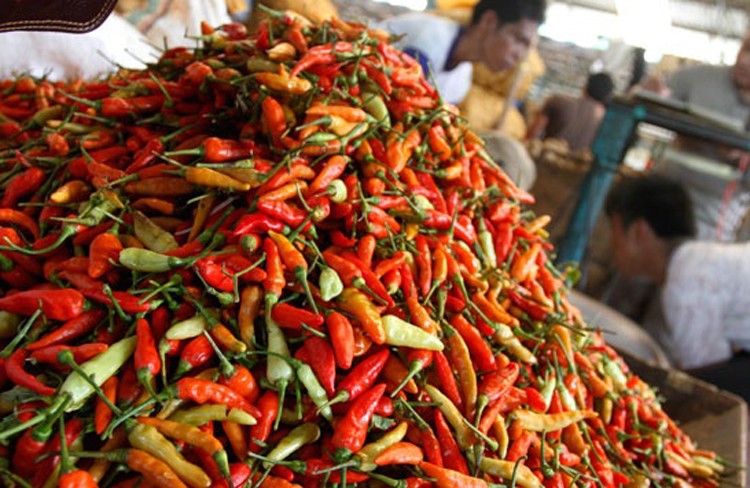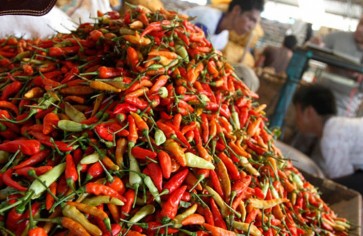Popular Reads
Top Results
Can't find what you're looking for?
View all search resultsPopular Reads
Top Results
Can't find what you're looking for?
View all search resultsEDITORIAL: Hot chili issue remains hot
The Agriculture Ministry claimed that despite the rainy season, production had decreased only slightly, but we doubt this claim.
Change text size
Gift Premium Articles
to Anyone
E
very time a wave of steep price hikes hits horticulture, as it has been doing with hot chili over the last three months, the basic issue of Indonesia’s food security resurfaces with a fierce blame game between the ministries and other institutions responsible for farm produce production and distribution.
Yet more damaging to the future development of horticulture distribution networks is the involvement of the National Police’s detectives investigating the causes of skyrocketing prices, which last month reached as high as Rp 200,000 (US$15) per kilogram in the East Kalimantan town of Balikpapan, more than three times the normal price for red chili. This is an anomaly because it is usually during the Ramadhan fasting month and Idul Fitri celebrations that the prices of food produce tend to increase sharply.
But it was also mindboggling to observe why the price of hot chili, which is not a vital spice, has become such a hot issue on the public opinion agenda since last December.
After a few days of joint investigation, police detectives, the Agriculture Ministry and the antitrust body (KPPU) immediately concluded that the unusually steep price hike was caused by speculators who allegedly had sold their stocks directly to industrial users instead of to the market. Three suspects were charged with manipulating chili prices.
The KPPU even jumped into the fray, hinting at strong indications of cartel-like trading and criticizing the chili distribution chain as too long, even though the antitrust body itself admitted it was still studying the whole supply chain.
We find it hard to accept massive hoarding as the main reason, because chili, a highly perishable commodity, is mostly used fresh to make spicy sauce.
The Agriculture Ministry claimed that despite the rainy season, production had decreased only slightly, but we doubt this claim. The ministry should have learned from past experiences where chili prices tend to spike after a prolonged rainy season due to smaller crops. Chili crops cannot tolerate excessive moisture and damp air, which results in harvested chili spoiling more rapidly during storage and distribution. The problem has been exacerbated by the government’s self-sufficiency policy, which bars imports, thereby making supply highly vulnerable to erratic weather conditions.


















